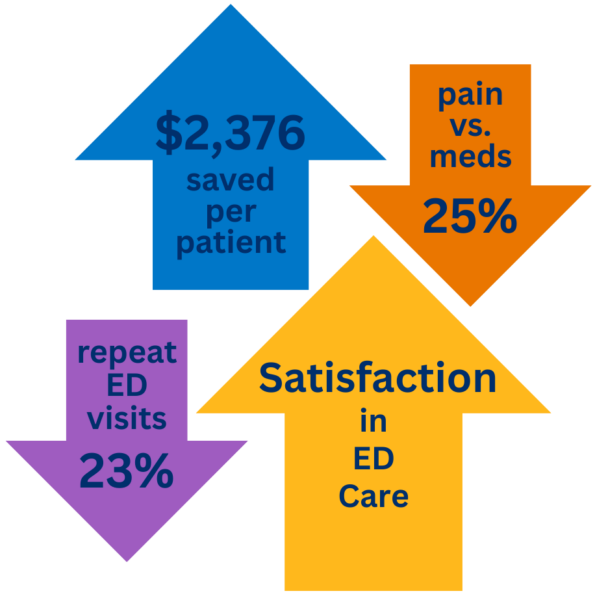Physical therapists are transforming emergency care. Over the past decade, physical therapists have become increasingly vital members of emergency department teams. In the busy ED environment, PTs offer expertise in musculoskeletal evaluation and early mobilization allows for more accurate diagnoses, faster treatment, and reduced reliance on imaging and medications. Furthermore, by integrating PTs into emergency care, hospitals can improve patient flow, reduce unnecessary admissions, and provide more personalized, nonpharmacological pain management—especially important in addressing chronic pain and combating opioid overuse.
At Education Resources, Inc., we support this growing field by offering emergency room and acute care continuing education courses for physical therapists. In fact, through ERI’s live webinars and on-demand video library, PTs can gain the skills and confidence needed to thrive in fast-paced emergency settings. Overall, whether you’re looking to start an ED PT program or strengthen an existing one, our training resources are designed to help physical therapists deliver high-quality, evidence-based care that meets the needs of diverse patient populations.

Physical therapists in the emergency department improve patient costs, satisfaction, and outcomes while reducing the need for pain medications and repeat emergency visits for the same issue.
How PTs Are Transforming Emergency Care
🏥 Emergency Department Efficiency
· 2 hours saved on average when PTs are consulted vs. ED physicians alone
· Decreased wait times
· Improved patient throughput
· Shorter length of stay
🛏️ Hospital Admissions & Readmissions
· Earlier discharge
· Avoidance of unnecessary admissions
· Lower return rates to ED within one year
😊 Patient Satisfaction
· Higher satisfaction rates with PT care
· Decreased total time in ED and increased contact time
Education Resources, Inc. Courses in Emergency and Acute Care
Effective Physical Therapist Management of Patients in the Emergency Setting: Differential Diagnosis, Intervention, and Inter-Professional Collaboration
Michael Lebec, PhD, PT
On-Demand Course
Learn to distinguish sources of pathology, conduct an efficient physical exam, and administer interventions even when limited to one or few episodes of care.
ICU and Acute Care Update
Chris Wells PT, Ph.D., CCS, ATC
Live Webinar November 1 and 2, 2025
Adults experiencing cardiovascular and pulmonary critical illness in ICU or acute care settings experience limitations and deterioration of function for many typical and daily activities. Early mobility and physical activity can lead to an increase in functional capacity and improve quality of life for these patients.
Acutely Adorable: Pediatric Therapeutic Interventions in Acute Care and Beyond
Siobhan O’Donnell PT, DPT, PCS
Live Webinar starting October 9, 2025 – Four sessions
Live Webinar starting January 14, 2026 – Four sessions
Live Webinar starting October 1, 2026 – Four sessions
Pediatric acute care therapy for children and adolescents with pediatric neurological, cardiovascular, pulmonary, gastrointestinal and orthopedic disorders, as well as oncology, burns, and hematology.
Collaborative Dementia Care: Integrating Person-Centered Strategies for Positive Outcomes
Robyn Ligotti, PT, DPT
On-Demand Course
Therapists in ED and urgent care settings must recognize and be comfortable altering communication and intervention strategies when someone with dementia is under their care. Learn effective strategies for communicating, educating, and treating persons living with dementia, along with caregiver collaboration to reduce further complications.
Vestibular Rehabilitation: Evaluation and Management of Individuals with Dizziness and Balance Disorders
Richard Clendaniel, PT, PhD, FAPTA
Live Webinar starting September 20, 2025 – Two sessions
In-person starting October 18, 2025 in Seattle, WA – Two sessions
Learn to assess and treat patients with vertigo and disequilibrium from vestibular causes. The information presented in this course is applicable to a large patient population including geriatric patients and individuals with CNS lesions such as multiple sclerosis, CVA, and head injuries. Specific emphasis will be placed on the assessment and treatment of unilateral and bilateral vestibular hypofunction, benign paroxysmal positioning vertigo, central vestibular disorders, and multisensory dizziness.
Vestibular Rehabilitation: Advanced
Richard Clendaniel, PT, PhD, FAPTA
Live Webinar starting December 6, 2025 – Two sessions
The course will focus on the assessment and treatment of patients with vertigo and dysequilibrium from unusual vestibular causes. The course is designed for clinicians (PT & OT) with prior vestibular rehabilitation course work and clinical experience.
References:
Hanelt, K. (2025). A Critical Addition: Embedding PTs into Emergency Departments APTA Magazine,17 (5), 24-32.
